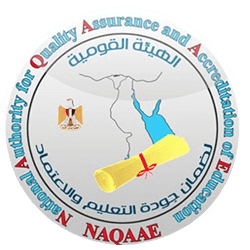Breadcrumb
About Industrial Engineering
Mission and Objective
Our mission is to teach students in the principles and practices of industrial and service management engineering. We offer students a foundational knowledge of science, mathematics, and reasoning. We provide them with practical engineering skills to solve complex problems and to build systems that integrate people and advances in technology. This program emphasizes developing analytic abilities in students; helps them make better decisions, develop, and execute strategies, and lead people to innovation.
It addresses the technical as well as the behavioral challenges of running organizations and complex entities. It emphasizes on quantitative analytic skills and entrepreneurial spirit. In this program, graduates will conduct experiments to design better systems, organizations, and work processes. They will understand how to analyze data to solve real-world problems by developing mathematical and computational models. They will be also able to communicate effectively in the team environments found in so many contemporary organizations, design and improve manufacturing and business operations; design experiments, analyze data, and solve real-world problems independently. This program enables students with industrial engineering bachelor’s degrees to enhance their undergraduate training with studies in special fields such as manufacturing and automation, human factors, service management and logistics and quality management and sustainability.
One of the main objectives of the Industrial Engineering program is the continuous interaction with the needs of the labor market as that market is what represents the real consumer and is in line with the comprehensive quality system.

Description
The Industrial Engineering program focuses on graduating a generation of engineers who are able to design, develop, operate and manage industrial systems and service systems efficiently with the aim of maximizing productivity, reducing costs, and raising the level of quality of production or service provided.
The program is concerned with arming graduates with all modern means and tools and engineering knowledge necessary to keep pace with the development in industrial and service systems worldwide.
IENG is a credit hour-based program with a total of 144 CH allowing its students to graduate after 4 years (8 semesters) of studying.
The set of skills that IE students will acquire are the following:
The main output of the proposed program is a generation of engineers specialized in industrial engineering so that the graduate will be able to:
- Design, develop, implement, and improve integrated systems that include people, materials, information equipment and energy.
- Understand the engineering relationships between the administrative tasks of planning, organizing, leading, and controlling human elements in production, research and service organizations.
- Understand and deal with the integration of management systems in a range of different technological environments.
- Provide strong relationships between local economic sectors and industrial societies with graduates of the department in fields related to research, practical training and field investigations.
The outputs of the program must comply with the requirements of the consumer and
accordingly the university is committed to communicate with the chambers of commerce and
industry representing the industrial and service community to get to know the real needs of
graduates from the program, as well as for the formation of continuous channels for training
students in these factories and services.
The program has been designed to comply with the current era of need to apply systems to
increase productivity while maintaining international standards while maintaining an
appropriate production price.
This is with growing levels of demand and rising standards of living and increasing industrial
needs, taking into account the standards of adjustable designs at an acceptable and
competitive cost, which contributes to the compatibility of the graduates' major with the actual
market needs.
National Institutional Accreditation
|
|
The Industrial Engineering (IENG) program is planning to apply to national accreditation from The National Authority for Quality Assurance and Accreditation of Education “NAQAAE”, https://naqaae.eg/ar NAQAAE is a governmental body was established to enhance the quality of education in Egypt. |


